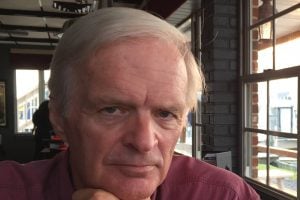
When Wilson J. Rugh, now a professor emeritus in the Department of Electrical and Computer Engineering, co-wrote a paper titled “Research on gain scheduling,” back in 2000, it generated plenty of buzz. For example, Rugh found himself delivering keynote addresses at international conferences in the Netherlands and Hong Kong.
He was surprised, however, to find that the paper earned him a bit of acclaim outside of academia.
“It’s the only paper I’ve ever written that I received fan letters for,” remembers Rugh. “I got letters from a few different people who worked deep in the automotive and aerospace industries, saying things like ‘I’ve been working on gain scheduled autopilots for years, but nobody ever wrote about it in the research literature, I’m so glad you did it.’”
Two decades later, that paper continues to receive accolades. Recently, the International Federation of Automatic Control’s Council named it the High Impact Paper Award for 2020. Rugh will receive this honor, bestowed only every three years, at the IFAC World Conference, slated for Berlin in July.
The paper focuses on the theory behind gain scheduling– an approach to control of nonlinear systems using a family of linear controllers, each providing satisfactory control for a different operating point of the system. Before Rugh’s paper, gain scheduling was often an overlooked subject. For example, at the time, “gain scheduling” was not included in the keyword list of two premier publications – IFAC’s Automatica and IEEE’s Transactions on Automatic Control – despite gain scheduling being frequently found in aircraft autopilots, and in engine controls for cars.
The paper, which has been cited 1,849 times according to Google Scholar, played a crucial role in bringing gain scheduling to the attention of control research literature.
Rugh co-wrote the paper with Jeff S. Shamma, who is a professor of electrical engineering at King Abdullah University of Science and Technology in Saudi Arabia. Both men were looking to add a sound theoretical basis for game scheduling independently, though using different mathematical formulations to approach the problem. After learning about each other’s interest in the same subject, they decided to work together to write a paper that highlighted both of their approaches.
Rugh credits being at Johns Hopkins as being key to pursuing this research.
“The freedom Johns Hopkins gives you to do what you think ought to be done is foundational to this place,” Rugh said. “It’s a great environment for pursuing research, and I hope that is never lost.”